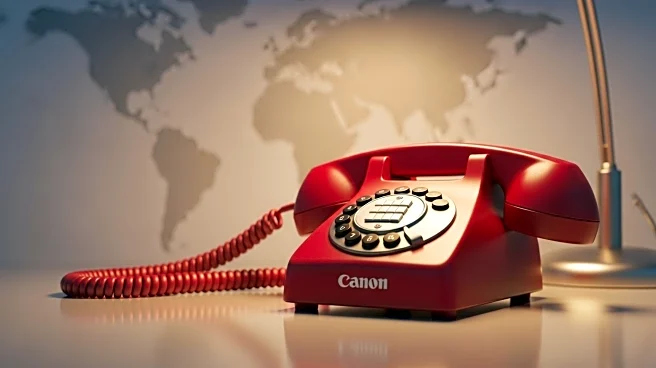What's Happening?
President Trump disclosed details of a phone call with Israeli Prime Minister Benjamin Netanyahu that led to the acceptance of a cease-fire proposal for Gaza. Trump emphasized the opportunity for victory and the necessity of the agreement, which includes a hostage exchange and withdrawal plan. Netanyahu, initially hesitant, agreed to the terms, influenced by Trump's assurance of restoring international support for Israel. The plan involves Hamas releasing hostages and ending the conflict, with negotiations set to begin imminently.
Why It's Important?
The phone call marks a significant diplomatic maneuver by President Trump, showcasing his influence in resolving international conflicts. The agreement could lead to a reduction in violence and establish a framework for peace in the region. For the U.S., it underscores Trump's role in shaping foreign policy and his ability to broker critical agreements. The plan's success could enhance U.S.-Israel relations and impact regional stability. However, the risk of non-compliance by Hamas or other parties could undermine the agreement, affecting U.S. diplomatic credibility.
What's Next?
The next steps involve initiating negotiations and ensuring compliance with the agreement. Diplomatic efforts will focus on addressing any challenges that arise and securing the release of hostages. The international community will monitor developments closely, as the outcome could influence future peace initiatives in the region. Political leaders and civil society groups may respond based on the progress of negotiations, with potential implications for regional alliances and U.S. foreign policy.
Beyond the Headlines
The agreement could have deeper implications for the geopolitical landscape in the Middle East, potentially altering the dynamics between Israel and Palestinian groups. It may affect the role of external mediators like Egypt in facilitating peace. Ethical considerations, particularly regarding the treatment of hostages and the demilitarization process, could spark debates on human rights and international law. Long-term, the success of this plan could redefine approaches to conflict resolution and influence geopolitical strategies in the region.









